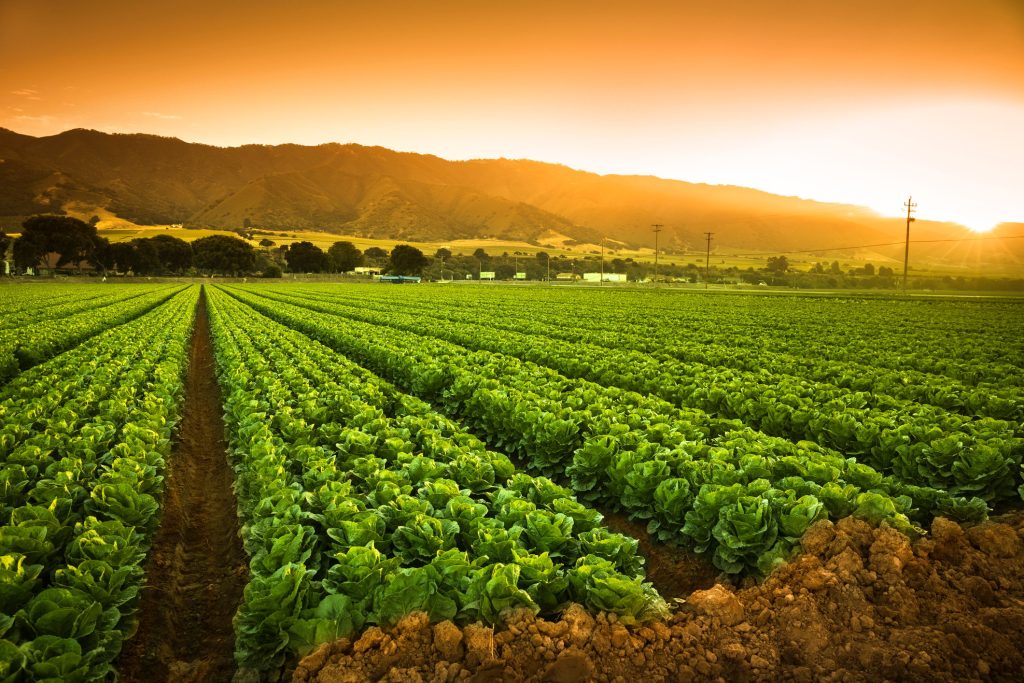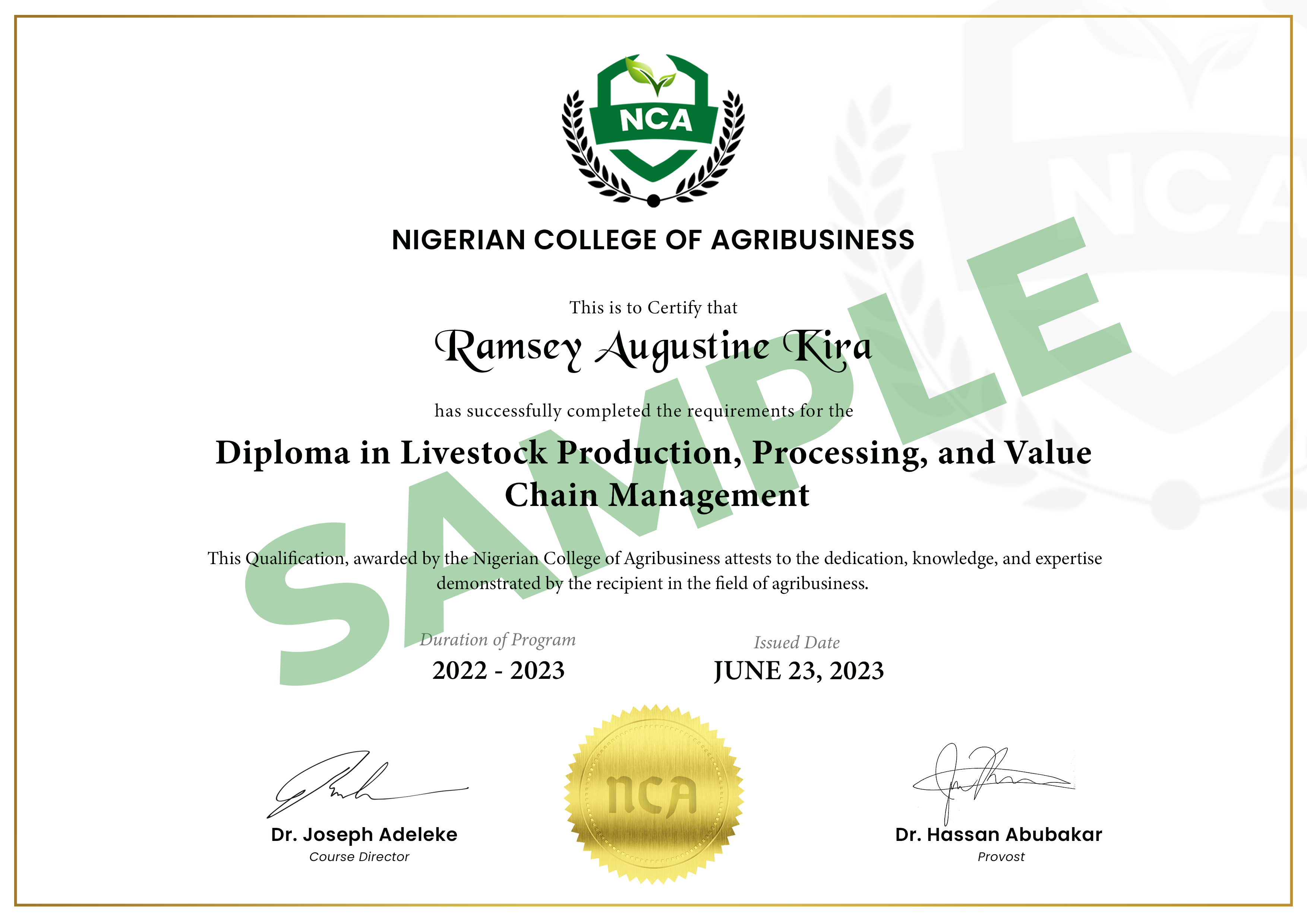
The Diploma in Crop Production, Processing, and Value Chain Management is a specialized program designed to empower participants with the knowledge and practical skills needed to excel in the dynamic and lucrative world of crop agribusiness.
This program distinguishes itself by placing a strong emphasis on specific crop value chains, allowing students to delve deep into the economic potentials of crop production, processing, and value addition. The program focuses on value chains of crops that have dynamic industrial values, allowing students to gain specialized knowledge and expertise that aligns with the demands of the industry. Graduates will emerge with a unique skill set, poised to harness the full potential of crop agriculture for sustainable, profitable, and value-driven enterprises. By exploring each crop’s unique value chain, students will learn to optimize production, reduce waste, and add value through processing and innovative product development. This empowers graduates to not only cultivate crops but also develop profitable agribusiness ventures.
The program will be delivered through a combination of class lectures (in-class with option for virtual attendance), Group project activities, Case study analysis, Farm Practical Sessions, Industry Visits and Capstone Projects.
Upon completion of the program, graduates can pursue various career paths as Commercial Farm Entrepreneurs, Crop Agribusiness Specialists, Crop Farm Managers, Agro-Processing Consultants, Development Professionals, Extension Executives, Value Chain Managers e.t.c.
Upon completion of the course, participants will earn a Diploma in Crop Production, Processing, and Value Chain Management from the Nigerian College of Agribusiness. At convocation, graduating students will receive their Diploma parchment as well as their Transcript of academic records.
NGN 250,000
April/May 2024 Stream

Click on the link below to fill the application form for this course
Do you need any further assistance regarding this program, send an email to: training@ncaedu.ng or chat with a program executive on WhatsApp via: 09023789104 (Nigeria)
Ready to Begin your application process? Click on “Apply Now” to access the application form.
Established in 2022 and approved by the National Board for Technical Education (NBTE), the College provides high-quality specialized education that strives to improve the productivity, performance and continuous development of professionals in Nigeria. The College has the Centre for Environment and Climate Innovation, Centre for Agribusiness Enterprise, Centre for Centre for Nutrition and Wellness, Centre for Development Leadership, Centre for Farm Management and Centre for Food Business Innovation. Through these centers, the college delivers need-based professional education to diverse professionals across the country and beyond. In 2023, the Nigerian College of Agribusiness was admitted into E4Impact Alliance, a network of leading business schools in Africa helping startups in Africa to scale up and attain their full potentials. Other members of E4Impact Alliance include University of Professional Studies Accra, University of Makeni Sierra-Leone and Uganda Martyrs University Kampala.

Our mission is to cultivate a vibrant, sustainable and profitable agribusiness sector that drives economic growth and social progress across Africa and beyond.
We are committed towards educating a new generation of agribusiness sector leaders that will transform the economic fortunes of the African continent
© NCAEDU 2023 All Rights Reserved.